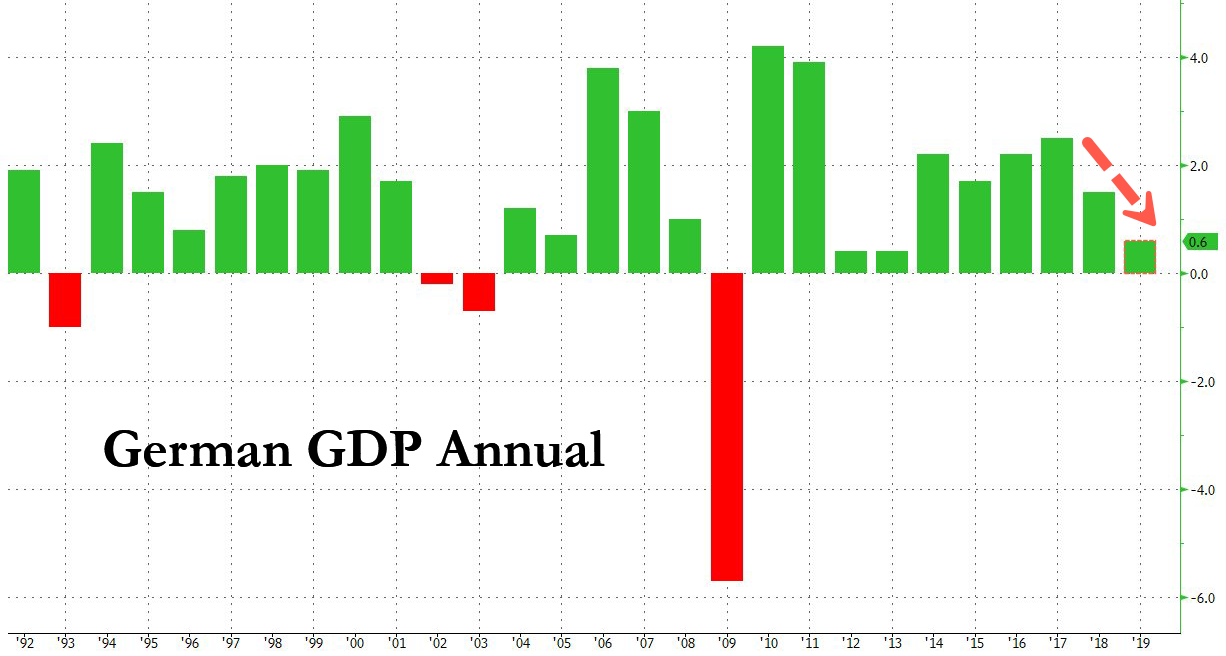Germany Records Slowest Economic Growth In Six Years
Germany’s economic growth rebounded slightly in the fourth quarter but slowed last year to its weakest level in nearly six years as trade tensions escalated, exports plunged, and a steep downturn in the automotive industry led Europe’s largest economy onto the brink of a recession, reported Bloomberg.
Official government statics show Wednesday morning that GDP growth rate in the last three months of 2019 was 0.6%, the lowest since 2013’s 0.4% expansion
Despite the economy continuing to decelerate, there was a small notable increase in GDP growth at the tail end of the year – with some optimism that the worst of the slump could be over.
A synchronized global downturn had plunged Germany into an economic decline since late 2017 when growth printed a high of 2.5% on the year. Then by 2018, growth plunged to 1.5%, and a year later, to 0.6% in 2019.
Germany narrowly avoided a recession late last year as GDP contracted in the second quarter and expanded by 0.1% in the third.
The economy is powered by industrials and exports, and with a global manufacturing recession still underway with a decelerating China – the hopes of a massive rebound in the European country are limited in 2020.
At the center of the global industrial slowdown is the auto manufacturing industry. Germany has yet to diversify from building cars and is still heavily exposed to global crosscurrents that persist.
As a countercyclical buffer, the German government deployed increased government spending to counter declines in equipment investment and exports.
“After a dynamic start to the year, and a decline in the second quarter, there were signs of a slight recovery in the second half,” said Albert Braakmann, head of the Federal Statistical Office of Germany.
Bloomberg economist Jamie Rush says the 2020 outlook for Germany is comparable to last year: sluggish. 2019 forecasts are 0.70%, which is barely any growth:
“Germany’s economy saw a slight recovery in growth in 4Q, according to the statistics office — that’s consistent with our slightly above-consensus expectation for an expansion of 0.2% to be recorded. Leading indicators have turned up into 2020, and we see the worst as being over for the German economy. Renewed trade tensions are the biggest risk to that view,” Rush said.
Tyler Durden
Wed, 01/15/2020 – 09:56
via ZeroHedge News https://ift.tt/2tbuJD7 Tyler Durden
